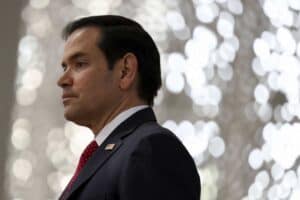The opposition hopes a big turnout will increase pressure for President Nicolas Madurore's removal from power.

Polls opened in Venezuela on Sunday in an opposition-organized vote to measure public support for President Nicolas Maduro’s plan to rewrite the constitution, against a backdrop of worsening political violence.
Dozens of people were queuing in Caracas neighborhoods including Chacaito and Los Palos Grandes before polling stations opened at 7:00 am (1100 GMT), according to the Democratic Unity Roundtable (MUD) opposition coalition.
They are due to close at 4:00 pm (2000 GMT), though they will remain open as long as people are in line.
Delegates and volunteers, many dressed in white, manned tents and tables at some 14,300 polling stations nationwide.
Maduro supporters are boycotting the vote, and the National Electoral Council has refused to authorize it, so the outcome is not binding.
Opposition leaders expect as many as 11 million of people to cast ballots anyway, voting to reject the president’s controversial plan for a separate referendum July 30 to elect a constituent assembly to rewrite the constitution.
The opposition is boycotting the Maduro-backed vote.
They hope a big turnout Sunday will increase pressure for Maduro’s removal from power, clearing the way for new presidential elections before his term ends in January 2019.
The rival elections have given rise to international worries — voiced by the Catholic Church and UN Secretary General Antonio Guterres — that the chances of bringing both sides together for dialogue have become more remote.
That in turn is stoking fears of more protests and running street battles with police, clashes that have cost the lives of nearly 100 people since the beginning of April.
Maduro portrayed Sunday’s vote as merely an “internal consultation by the opposition parties” with no electoral legitimacy.
But he also urged Venezuelans to “participate peacefully.”
While Maduro is deeply unpopular — with 80 percent of Venezuelans criticizing his rule, according to the Datanalisis survey firm — he enjoys backing from some, mostly poor, parts of the population and, most importantly, from the military.
Many Venezuelans, though, are less focused on the political power play than they are on just getting by day to day under a crushing economic crisis that has led to shortages of food and medicine.
‘Mandate for change’
The opposition accuses Maduro of attempting to assume dictatorial powers through the constitutional rewrite and other steps.
Opposition figure Maria Corina Machado predicted the vote would not only reject the Constituent Assembly but also “give a mandate for a change of the regime.”
She envisions a post-Maduro transition in which a national unity government would assume power.
In a national radio and TV broadcast on Friday, Maduro called on his followers to take part in a rival poll exercise Sunday that would serve as a dry run for the July 30 constituent assembly election.
Unlike the opposition-backed referendum, the government-backed exercise has been approved by the country’s electoral authorities.
Maduro has accused foreign powers of being behind the opposition’s bid to block the constituent assembly, and contends that international press coverage of the plebiscite was aimed at justifying foreign intervention.
Foreign observers
According to Datanalisis, 70 percent of Venezuelans reject Maduro’s plan for a constituent assembly.
Five former Latin American presidents — from Bolivia, Colombia, Mexico and two from Costa Rica — were in Venezuela at the opposition’s invitation to act as observers of the vote, alongside electoral experts from various countries.
Former Mexican leader Vicente Fox said on arriving in Caracas that the vote could be the “beginning of the end” of Maduro’s government.
The head of the Organization of American States, Luis Almagro, called on Venezuelans to take part in the vote “to prevent the definitive collapse” of the country’s institutions.
© Agence France-Presse






